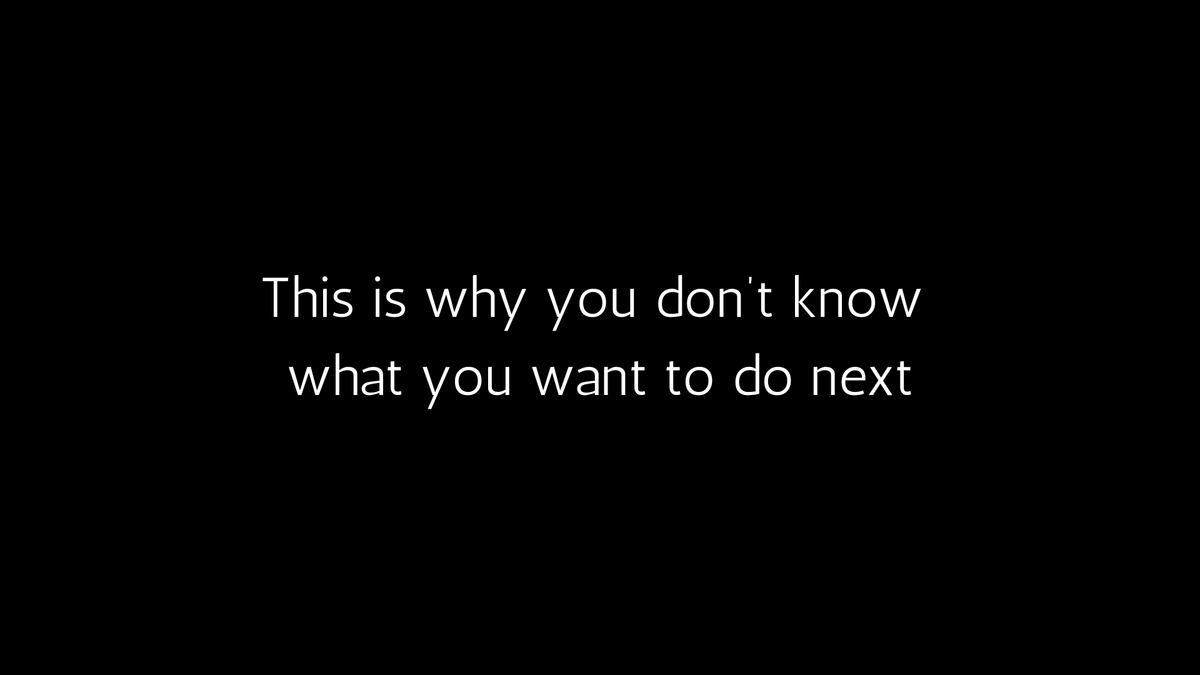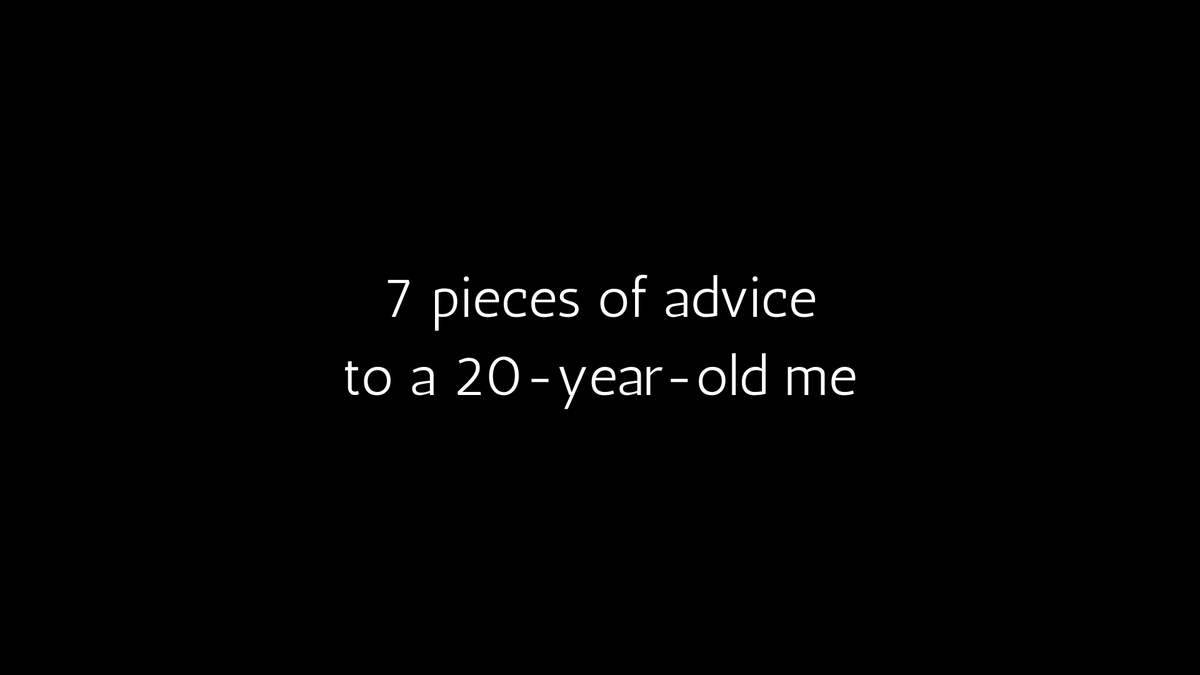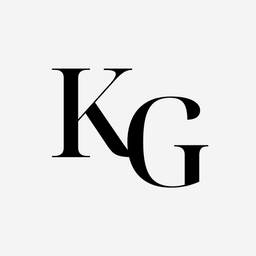5 reasons you're struggling to figure out what you want to do next (+ how to fix it)

Let's get straight into it, shall we?
Here are 5 common reasons you might be struggling to figure out your next steps and a couple of tried and tested tips to help you get unstuck.
My hope?
That by the end of this article, you'll:
- Have a much clearer picture of the roadmap to figure out what you want to do next..
- Know tools and exercises to support you on your way.
- And hopefully, be nicer to yourself for not having it figured it out just yet.
Let's go.
1) You feel it is something you should just know
Issue:
We often assume that knowing what you want to do with your life is something you should just know.
From as early as high school, or even earlier, people will ask what you want to do when you grow up. The older you get, the more frequent these questions become, and although well-intentioned, they subtly imply that we should just know.
And even if these types of conversations might help you explore what you want to do next, they should be treated as a starting point of the discovery process rather than the main vehicle to finding an answer.
Our schooling system is no better at helping us figure it out, either: there are rarely any classes or courses exploring this question. Yet, at the very start of university or even earlier when starting high school—you need to decide on your major with little guidance on how to make this choice.
As a result, you may feel pressure to have it all figured out and feel 'late' in discovering your 'true passions' (whatever that means), which isn't the most encouraging starting point.
This can be isolating, especially when it seems like everyone else has their path mapped out. But the truth is, you don't know what's happening behind the scenes, and many people are just as confused as you.
Solution:
One part of the solution to feeling like you should just know is realising how unrealistic that expectation actually is. Unless you're one of the lucky few, you simply cannot know before first gathering some data: what excites you, what you'd like your days to look like, what the options are, what these options look like day-to-day, and how people in those jobs feel about their work - do they enjoy it and if so, why?
The second part of the solution is recognising that you're not alone in feeling this way. In fact, if you spoke to your friends or classmates, you'd soon see that the majority struggles with this question, proving how irrational it is to think that anyone just knows.
This really clicked for me right after graduation when I organised a three-month workshop for students and recent grads to work through some introspective questions and support each other in figuring out what we wanted to do next.
I found it mindblowing that 60-70 students showed interest in the workshop, and 8-10 ultimately signed up.
The workshop proved super helpful, not only because it helped us come up with new ideas but also because it was reassuring for people to realise that others share the same uncertainty about the future.
So, if you have the chance, I encourage you to set up a similar group or workshop with friends to discuss these way-finding and career-related topics.
If you’re interested, I could even set up a WhatsApp group to connect you with others who feel the same way and to support one another. If this sounds like something you'd like to do, add your details here, and if there’s enough interest, I’ll create the group for you all.
2) You stopped experimenting
Issue:
This ties into the first point - you may view deciding what you want to do next as something you stumble upon rather than a process of testing, experimenting and deciding based on the information and experiences you collect.
This approach can work well in school because you are naturally exposed to different subjects, allowing you to explore different areas and (hopefully) discover something you like.
In high school, for example, you must cover many different topics, including history, chemistry, your language of choice, biology, and economics. This works like one big experiment - you learn a bit about each topic, and through this exposure, you might come across a topic you actually find interesting.
If you then pursue this interest at university (assuming you go to uni), your curriculum would likely expose you to different pockets of the topic and help you further refine your interests and move toward a specific professional path.
But when it’s time to transition from university to a career, this element of experimentation largely disappears. You’re expected to choose a career path, but you rarely get encouraged to spend a year trying out different roles.
You might do an internship or two, but your options are limited, often leaving you to make a significant decision based on limited information.
Solution:
Give yourself time to explore different options rather than rush into a career or path without gaining enough insight into what it might entail.
This can take different forms:
- Conversations with people who work these jobs
- Side projects
- Shadowing
- Internships
- Or even taking on an entry-level job and seeing how you like it without feeling bad about switching it up later if you discover it's not your cup of tea.
How to do it is covered in the following section.
3) You don’t have a process in place to collect information and come to conclusions
Issue:
Because of the previous point, we are sort of left to our own devices by the time we graduate from university.
When you think about it, school has a certain structure. There are classes, modules, etc., that take you through the full curriculum.
This helps you focus on course contents rather than on how you will graduate because the path is largely laid out for you.
But when you graduate, this structure disappears.
Now you are the one fully deciding on which turn to take, which careers to test (if I convinced you to do so) and how to come to conclusions. Ultimately, you're designing your career-testing curriculum.
And this can be overwhelming.
You are not only faced with this big decision — likely the biggest you had to make so far in your life — but you also have to figure out how to make this decision in the first place.
I can vividly remember how this felt when I graduated with a bachelor's degree in biomedical sciences.
I had no clue what was next.
There were potentially a lot of options, but I didn't know how to evaluate them and how to decide which one to pursue full-time.
It felt confusing because I didn't know how to structure this career discovery phase, and there wasn't anyone in my close environment who could help because this is generally not how people think about choosing a career.
So, I started digging around, reading about how to get unstuck and test different options.
Two books that proved incredibly helpful in this process were A Job to Love from The School of Life and Designing Your Life by Bill Burnett & Dave Evans.
Using these books, I created a process that got me unstuck and adjusted it as I went along.
Here's a quick, step-by-step summary of the process.
Solution:
First, you need to narrow down the scope of your experiments.
While it’s tempting to try anything that comes to mind, it’s more effective to start with a smaller set of options, each of which is likely to be a good fit for you.
What helps in this process is gaining a deeper understanding of yourself—knowing what excites you, drains you, and what you value most. This will drastically reduce the amount of options you could pursue.
Even if you feel you have a good sense of what you like and dislike, I encourage you to do some additional digging with these three helpful exercises.
In essence, these exercises will help you understand:
- What you enjoyed doing as a child + give you ideas on how you could incorporate these pleasures into your daily life.
- What you enjoy doing currently vs. which activities drain you, which will help inform which elements are welcome in your future career vs. ones that should be avoided.
- What your ideal future looks like, and how your career can help you get there.
I describe these exercises in more detail here:
Once you have a solid grasp of what you find important and enjoyable, it's time to look at what jobs/careers out there could match your preferences.
You can find a guide on how to do that here:
Finally, once you have shortlisted a couple of ideas that, in theory, match your preferences, you should go out there and validate your assumptions.
You can do this in 3 ways:
- Chatting with people who are pursuing the career you're interested in. I explain how to do that here:
- Following them for a couple of days to see their daily activities firsthand.
- Volunteering or doing an internship related to that career. I explain how to find opportunities like these here:
So, in summary, your process has 3 steps.
- Self-understanding
- Market understanding
- Validating your assumptions.
That's it.
Happy to share a roadmap of how to plan this into your daily routine, if that'd be something of interest - let me know.
4) You underestimate how long the process takes
Issue:
The thing is - I am really impatient (and maybe you can relate).
I want it all, and I usually want it now.
The same was true when I was deciding what I wanted to do next.
I didn’t want to waste time figuring it out; I just wanted to be on a clear path.
Being on a path seems much easier: having a clear goal and relentlessly going after it. It’s much harder to deal with uncertainty, not knowing, and feeling lost in a sea of options.
This led to all sorts of issues.
Firstly, I was putting a lot of pressure on myself and felt shame for not having it all figured out. I felt like I should just know — relating back to the very first point I made in this article.
Secondly, I was trying to rush things — it was hard for me to accept that making this decision takes time and that I may need to find an interim option that will allow me to cover the basics as I figure out my next steps.
Thirdly, because I felt rushed, I did not do the proper due diligence on a path I wanted to pursue, which meant going down a rabbit hole for a few months.
Solution:
Ok, let me ask you a question.
If you're going to spend, let's say, the next 5-10 years (assuming you will at some point switch careers) or the next 30-40 years (if you don't switch careers, which in today's world is unlikely) pursuing a specific path, doesn't it make sense to invest a few months to a year testing out different options and understanding what you're getting yourself into?
For example, wouldn't it make sense to work as a lab assistant for 3 months before deciding to pursue a PhD?
Or to speak to a few strategy consultants to understand the realities of the job before putting in a ton of effort to prepare for case interviews and going through a very long recruiting process?
Or shadow or volunteer at a local hospital for a couple of weeks to understand the reality of being a doctor before deciding to study medicine? (This, btw, is a requirement in the UK — you won't get accepted to med school unless you shadowed a doctor for a while).
It would, right.
Of course, you can always pivot, even if you have invested time and energy into something that ultimately isn't satisfactory for you. All I’m saying is that you can mitigate the risk of major life pivots later on by giving yourself time now to explore freely, without any commitments.
Understanding this while still in school is great because you can explore and experiment during your studies.
If not, it's fine. Get a part-time job and experiment while being able to cover your basics. Without the rush and without so much pressure.
5) FOMO
Issue:
Finally, we have a problem that's actually quite nice to have.
Maybe there are a couple of options that all seem equally exciting. Maybe you have already spoken to some people and understand what each job/career would entail, yet you still have a hard time deciding which one to pursue.
Solution:
A decision matrix to the rescue.
This is quite simple and will take only a few minutes.
Start by listing the careers you’re considering in columns.
Then, in rows, write down the decision criteria that matter most to you. This should be personalised, as only you know what’s truly important to you.
If you’ve done the self-discovery exercise I mentioned earlier, you can use it to identify criteria that are meaningful to you.
If you haven’t, that’s fine—just take some time to think about what matters most to you in a job.
It could be working hours (how much time will you have for your friends, fam or for working on your side project), associated risk (for example, starting a business is riskier than being a consultant), salary, top-down culture, etc., etc.
Next, assign a weight to each criterion using a scale from 1 to 5. For example, if work-life balance is far more important to you than salary, you might give work hours a 5 out of 5 and salary a 3 out of 5.
Then, rate each career option based on how well it meets each criterion. For instance, strategy consulting might score a 2 for work hours, a 4 for salary, and so on.
Side note: Make sure the numerical values you assign to each criterion are consistent. For example, a higher number should always indicate something better. Building on the salary and work hours example:
- A higher salary = a higher number
- Fewer working hours = a higher number since you’d prefer fewer hours.
If you assign a lower number for fewer working hours (reflecting the number of hours), the results will be inconsistent and hard to compare. Hopefully that makes sense.
Finally, multiply the weight of each criterion by the career score received for that criterion and sum up the results across criteria for each job.
The career/job with the highest number wins.
Wrapping up
That's all for this week — hope this was helpful and gave you a tangible idea of how to figure out what you want to do next and the issues that might be holding you back from doing so.
If you found this article interesting, you might also like the article on the 7 pieces of advice I would give my 20-year-old self:

Speak next week xx
